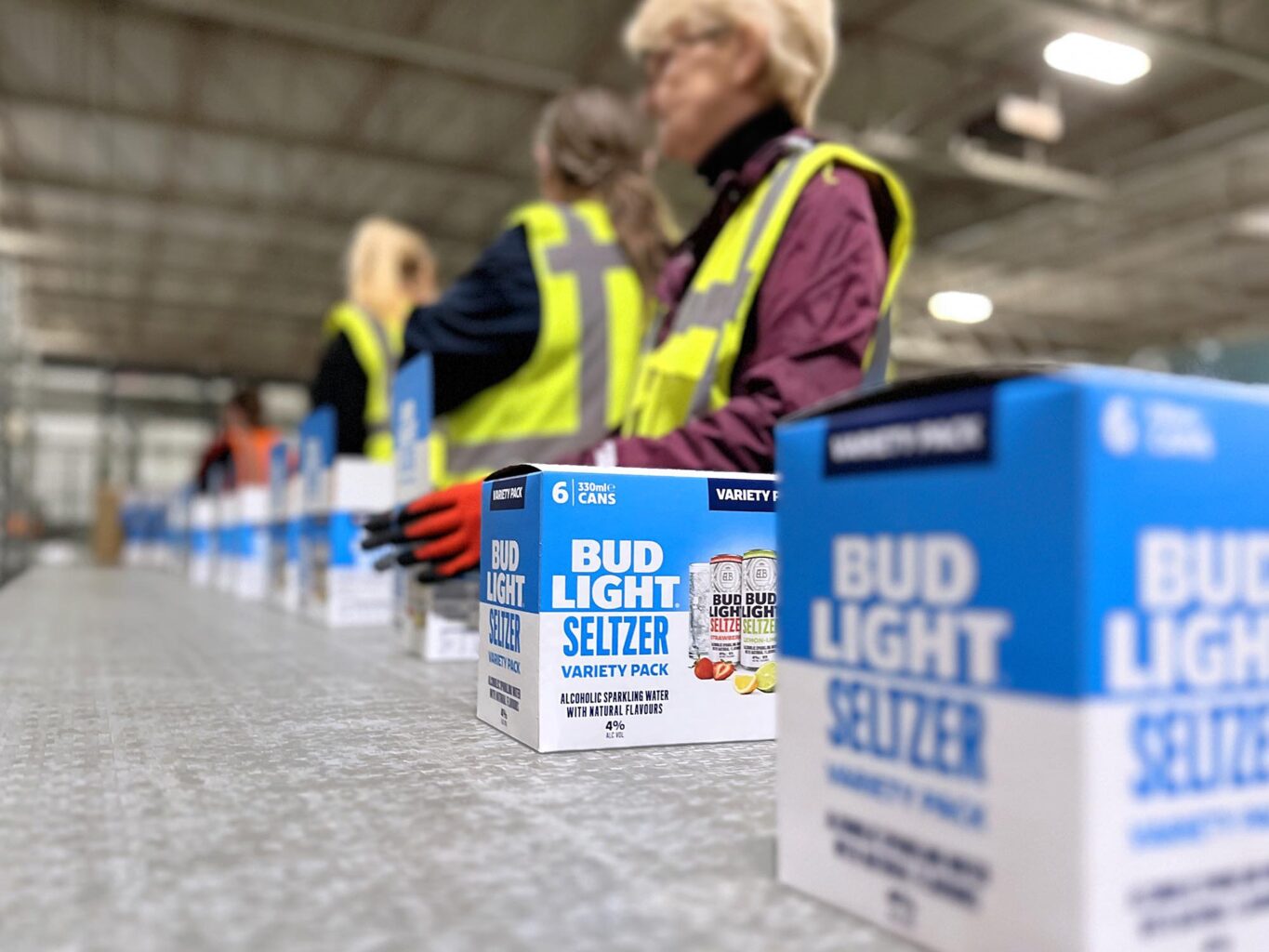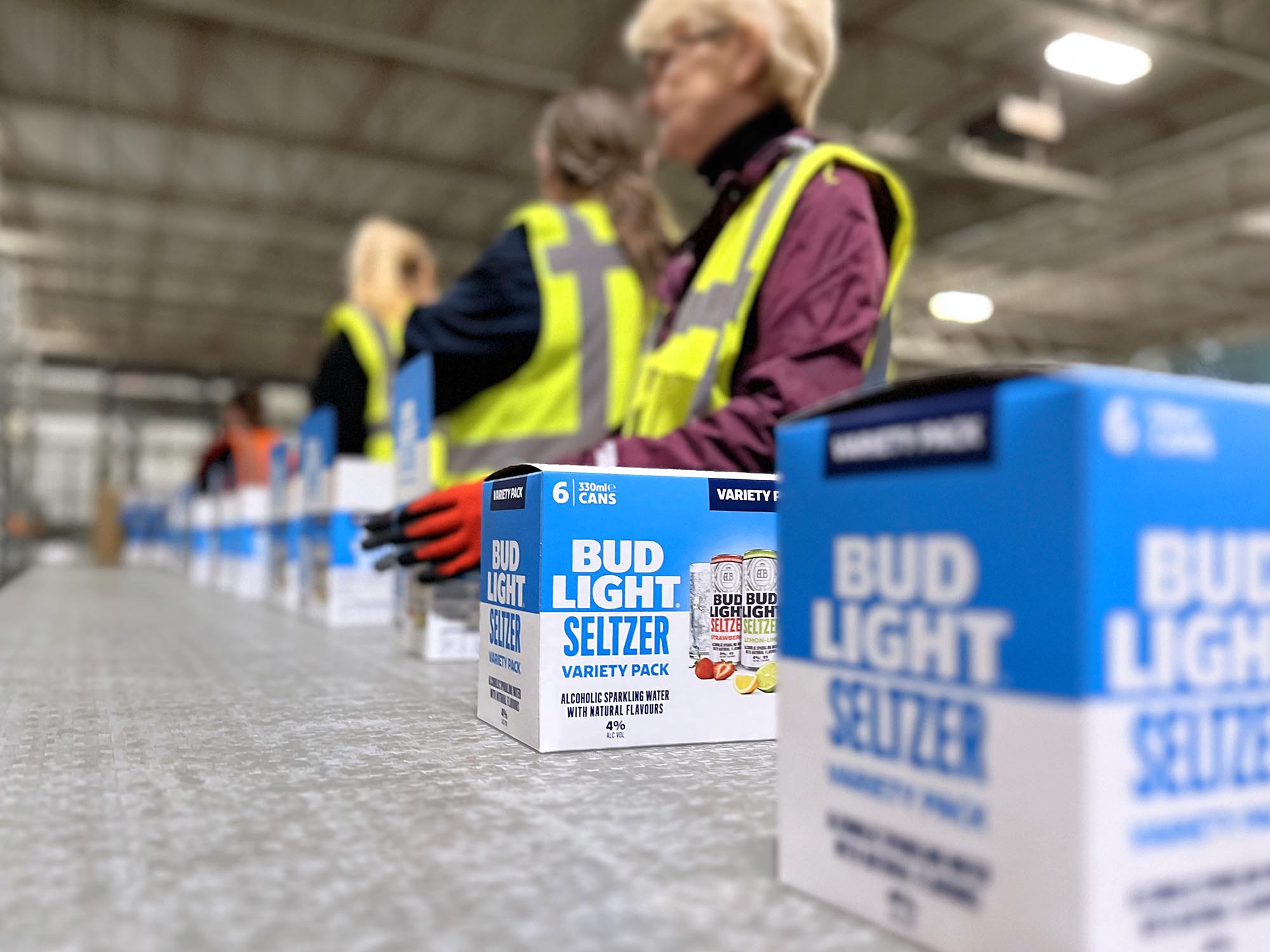Lorem ipsum dolor sit amet, consectetur adipiscing elit Lorem ipsum dolor sit amet, consectetur adipiscing elit
Latest news from Packaging Innovations & Empack
The co-packing community and seamless supply chains

As global supplyitch chains evolve and consumer expectations increase, logistics is becoming ever more important and can no longer be defined simply as the movement of goods from Point A to Point B.
In this new landscape, logistics providers are offering increasingly integrated solutions, from packaging, labelling, and assembly to returns management, customisation, and data-driven insights.
Brands today are looking beyond transport and warehousing for strategic partners who can provide such value-added services, which enhance flexibility, efficiency, and customer satisfaction and unlock new levels of competitiveness.
Amberley Labels is a leading provider of digitally printed labels and packaging. David Richards, Managing Director at the UK printer, advises that to scale effectively, businesses need agile supply chains that support short runs, fast turnarounds, and are not always focused on a centralised production.
“Working with partners to outsource and offer fulfilment is a key to success on smaller campaigns.”
It is similarly true of large-scale, complex projects, where it can be equally important for supply chains to be adaptive and responsive. In all instances, collaboration is key. Collaboration across the supply chain and that includes brand owners, logistics providers, and co-packers builds strong relationships that ultimately lead to success.
When Packaging Innovations & Empack 2026 returns to the NEC, Birmingham on 11 & 12 February next year, the Contract Pack & Fulfilment zone will be a focal point for connecting all stakeholders. Ambitious brands and retailers will connect with partners that help them grow through flexible and scalable solutions suitable for those outsourcing for the first time, right through to businesses managing rapid expansion.

The key to success
“Collaboration is central to success,” states BCMPA CEO Emma Verkaik.
“Strong partnerships between brand owners, logistics providers, and co-packers enable seamless information exchange, faster decision-making and agile responses to market demands. This means building supply chains that are not only more efficient but more adaptive, transparent and sustainable for the future.”
BCMPA – previously the British Contract Manufacturers and Packers Association and now the Association for Contract Manufacturing, Packing, Fulfilment & Logistics – is a major force for promoting the services of the UK’s contract manufacturing and packing industry.
The association has witnessed the evolution of co-packers and their changing role within packaging supply chains. With increasing demand for end-to-end services and direct-to-consumer delivery, BCMPA member businesses now apply their expertise right across the supply chain. This was a contributing factor to BCMPA rebranding in 2019.
Verkaik sees this evolution as ongoing and says: “The role of co-packers has become increasingly vital for brand owners and retailers, ensuring the safe and timely delivery of products to customers, regardless of whether in-store or through e-commerce and fulfilment channels.
“A combination of national and global challenges has underscored the importance of having valued and committed partners, which is more critical than ever. The Covid-19 pandemic and more recent supply chain disruptions have shown that relying solely on offshore options and one-off fixes is not viable.
“Historically, co-packers have been engaged on a more transactional basis, but this dynamic is shifting as companies recognise the long-term value of close collaboration with third-party outsourcing partners. These relationships continue to evolve, supported by stronger communication and mutual trust. In addition, issues such as labour shortages, cost rises, and the requirement for enhanced quality assurance mean the need for collaboration between suppliers and customers is even greater.
“Data exchange and operational efficiency will be better facilitated through deeper and more integrated working relationships. As I say, ‘Communication is key and a co-packer should be for life, not just for Christmas.’ By building enduring partnerships, both customers and suppliers can adapt, evolve, and secure more resilient supply chains for the future.”

Mick Clark, Managing Director at WePack, affirms all of this: “Co-packers have become much more important in recent years. In the past, they were mainly used to handle overflow or basic packing work, but now they’re seen as real partners in the supply chain. Companies are under pressure to cut costs and stay flexible, so outsourcing to experienced co-packers has become a smart move.”
As an independent contract packing company, WePack offers bottling, sachet and pouch filling, and hand assembly projects, as well as a host of complementary services for food and non-food applications.
Clark continues: “What’s changed is the level of professionalism. Many co-packers now offer technical expertise, quality control, and even help with packaging design or compliance. It’s no longer just about packing boxes; it’s about adding value and helping brands deliver efficiently.”
At the heart of transforming modern supply chains are technology, digitalisation and AI. Real-time tracking, automation, and advanced analytics allow for greater visibility and control across every stage of the supply chain, from raw material sourcing to final delivery. Predictive data helps companies anticipate disruptions, optimise dispatch routes, and reduce waste, while warehouse automation and robotics improve accuracy and speed of production.
“The role of third-party co-packers is expanding in response to an ever-demanding retail supply chain,” confirms Verkaik. “Shorter product lifecycles now require brands to react to market forces more rapidly, and while planning remains essential, the requirement for flexibility and agility has never been greater. Without a trusted supply chain partner, achieving this level of responsiveness is increasingly difficult.”
Then there is the demand for greater sustainability. With increased pressure placed upon customers by ESG guidelines, third-party suppliers are adopting greener logistics strategies. Electric vehicles, optimised transport networks, sustainable packaging, and carbon tracking are all playing a role in meeting both regulatory requirements and consumer expectations.
Verkaik adds: “Traditionally, co-packers have acted as custodians of their customers’ products, but their responsibilities have now broadened significantly. They must also navigate a range of external pressures, including the need for more granular data to comply with new Extended Producer Responsibility (EPR) legislation, changes to labelling requirements, and ESG. Furthermore, for products being shipped to mainland Europe, greater agility is essential to meet diverse market requirements and local regulatory nuances.
“Collaboration is the way forward, and co-packers are responding to these market demands by expanding their service offerings. They now provide a wider range of value-added solutions designed to support their customers at every stage, helping them to navigate challenges, overcome inevitable hurdles, and ultimately achieve greater supply chain resilience and efficiency.”

Ultimately, value-added services are redefining what logistics means in the modern economy. They bring together operational efficiency and customer experience, transforming logistics from a cost centre into a competitive advantage. As brands seek to build smarter, more responsive supply chains, these services have gone from desirable to strategically necessary.
Clark says: “Logistics has come a long way thanks to digital tools and better data. Real-time tracking, smarter warehouse systems, and AI forecasting have made supply chains more transparent and efficient. For co-packers, this means better stock control, shorter lead times, and fewer mistakes. It’s all about integration and the closer the link between co-packers, logistics providers, and clients, which results in the whole operation becoming smoother and more cost-effective.”
Clark predicts that the role of co-packers will only grow stronger in the future. “As markets move faster and customers expect more customised solutions, brands will rely even more on co-packers for flexibility and innovation.
“We’ll see more investment in automation, sustainability, and data systems to make processes smoother and greener. Co-packers will act less like external suppliers and more like long-term partners, helping brands adapt quickly and bring products to market faster,” he concludes.
Contract packing is once again to be an important part of the event experience when Packaging Innovations & Empack returns to the NEC, Birmingham on 11 & 12 February 2026. The Contract Pack & Fulfilment zone is a hub for brands and retailers wanting to connect with partners to help them grow with flexible and scalable solutions.
The event is free to attend and you can register your interest here
Share this article

Lorem ipsum dolor sit amet, consectetur adipiscing elit Lorem ipsum dolor sit amet, consectetur adipiscing elit
Latest news from Packaging Innovations & Empack
Lorem ipsum dolor sit amet, consectetur adipiscing elit. Ut elit tellus, luctus nec ullamcorper mattis, pulvinar dapibus leo.



